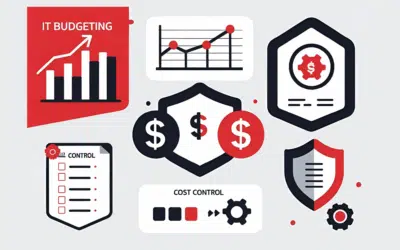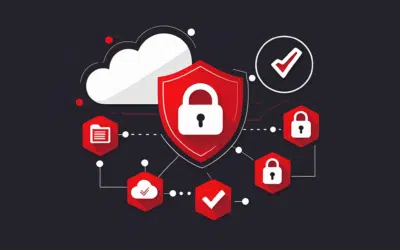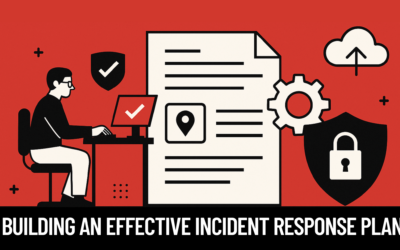Far more than just protecting physical assets, effective cybersecurity entails securing sensitive data and systems against compromise. For small businesses especially, even a single breach can deal lasting, disastrous damage.
And yet, many small companies wrongly assume cyber criminals won’t target them or have advanced enough security measures in place. But the reality proves different – 43% of cyber attacks are aimed squarely at small businesses, exploiting their typically lacking defenses compared to big corporations.
This piece will delve further into today’s cyber landscape to equip small business owners with actionable insights on protecting what matters most. Prioritizing security now, your company can avoid being the next victim tomorrow.
Understanding Cyber Threats
Cyber threats come in various forms. Malware, a harmful software that includes viruses, worms, and ransomware, infiltrates your system to wreak havoc. Phishing attacks, on the other hand, are scams where criminals impersonate trustworthy entities to trick employees into sharing sensitive data.
The threats don’t end there. Denial of service (DoS) attacks overload your system with traffic, slowing it down or causing it to crash. Man-in-the-middle attacks are where criminals intercept and possibly change communications between two parties without their knowledge.
Consequences of Cyber Threats for Small Businesses
If your enterprise becomes a victim of a malware attack, you could face system damage, data loss, and a hefty clean-up bill. A successful phishing attempt can cause confidential data breaches, damaging your finances and reputation.
DoS attack can result in considerable downtime and reduced productivity. A man-in-the-middle attack can lead to sensitive data falling into the wrong hands, resulting in financial loss and possible legal issues.
Understanding these threats and their consequences is crucial to protecting your enterprise.
Examining Vulnerabilities
To strengthen your small business against cyber threats, it’s crucial to first pinpoint your weaknesses. This is where a cybersecurity risk assessment comes into play, acting as a health check-up for your digital infrastructure.
Begin your risk assessment by itemizing all the IT resources your business relies on – hardware like computers and servers, software like business applications, and data. After documenting your assets, assess them for vulnerabilities such as outdated software, weak passwords, or unsecured Wi-Fi networks.
After identifying vulnerabilities, it’s crucial to evaluate their risk levels. Not all vulnerabilities pose the same risk – some might cause minor disruptions, while others could expose sensitive data. Understanding this difference enables you to prioritize your response.
Spotting Weak Points in Your Digital Infrastructure
Weak points in your digital infrastructure might catch you by surprise. For instance, many small businesses neglect the security of their website. If your website stores customer data, a breach could be devastating. Regular updates and patches to your website software can significantly reduce this risk.
Email is another frequently disregarded vulnerability. Email is a favored target for phishing attacks that can lead to data breaches. By implementing robust spam filters and regularly training employees to recognize phishing attempts, you can fortify this weak point.
Your network could also serve as an easy entry point for cybercriminals if left unsecured. Protect your network by implementing comprehensive security measures such as firewalls, secure Wi-Fi, and network monitoring.
Remember, identifying your vulnerabilities should be an ongoing process. Cyber threats are always evolving, and your defenses should too. Regular risk assessments and vigilance about weak points in your infrastructure are vital for maintaining your small business’s cybersecurity.
Adopting Protective Measures
Creating a cybersecurity strategy for your small business is akin to building a fortress. First, identify what you’re safeguarding – your valuable data and IT assets. Recognizing the risks they face, such as malware attacks or phishing attempts, allows you to plan your defense.
After identifying the assets and the threats, decide on your defensive measures. Often, this involves a combination of security methods unique to your business. A single solution can’t shield against all threats, so a multi-layered approach is necessary.
Essential Protective Measures: Firewalls, Antivirus Software, Encryption, and More
Consider firewalls as your digital fortress’s gatekeepers. They examine incoming and outgoing network traffic, blocking dubious activity. Firewalls form the initial defense line against cyber threats.
Antivirus software programs serve as your digital guards, continuously scanning for and removing harmful software before it inflicts damage. Keeping them updated ensures optimal protection.
Encryption, another crucial layer of your cybersecurity strategy, scrambles your data into a complex code decipherable only by authorized users. It’s particularly beneficial for safeguarding sensitive data like customer information and financial transactions.
It’s crucial to take a proactive approach and stay abreast of the latest cybersecurity trends.
Employee Education
The number one cause of a cyberattack? Poor security processes and behavior from team members. This isn’t often malicious behavior but rather a lack of training around how to help keep the company safe.
Employees are integral to your defense against cyber threats, but a lack of knowledge can make them unintentional allies of cyber criminals. They become more vulnerable to phishing scams and social engineering attacks.
Regular, in-depth training sessions can increase employee awareness and help them identify and respond to threats. Remember, cybersecurity training should not be a one-time event but an ongoing process that adapts to new threats.
Teaching Employees about Cyber Threats
Effective cybersecurity education begins with the basics, such as strong passwords and the risks of unsecured networks, before moving on to topics like phishing email identification and safe browsing habits.
Simulated exercises, like fake phishing attempts, can provide engaging, hands-on learning experiences. These aren’t meant to punish employees who fall for the scam but to create opportunities for learning.
Make sure your cybersecurity policy is clear, accessible, and updated regularly. This guide should outline protocols for suspected breaches, data handling, and secure online behavior. Employees should feel like a key part of keeping the company’s customers, data, and each other safe.
Continual training and a strong cybersecurity culture can transform your employees from potential vulnerabilities into solid defenses against cyber threats.
Collaborating with IT Security Professionals
Outsourcing cybersecurity offers compelling benefits. Cyber threats evolve quickly, necessitating substantial time and resources to keep pace. By collaborating with IT security professionals, you gain their specialized knowledge and expertise.
These professionals dedicate their careers to understanding and neutralizing cyber threats. They employ advanced tools and methods, which may be too expensive for smaller companies to use in-house. Oftentimes, outsourcing proves to be a cost-effective alternative to an internal cybersecurity team.
Not only does outsourcing offer financial advantages, but it also ensures round-the-clock supervision of your systems by experts in IT security. They efficiently detect and mitigate any potential risks, frequently before the problem becomes apparent to you. Taking a preemptive strategy is key to reducing harm to the minimal.
Protecting Your Firm’s Online Future
Cyber threats pose serious risks to your small venture. Ignoring the analysis of weak points, the establishment of security protocols, or the education of your employees can put your data, financial stability, and reputation at risk. Ensuring cybersecurity is not a singular task, rather it’s a sustained endeavor to preserve the trustworthiness of one’s created systems.
With the evolution of technology, cyber risks are also progressively becoming more sophisticated. It’s vital for us to remain updated and aware. At Axxys Technologies, we’re equipped with the necessary expertise and customized solutions. From employee training to regular penetration testing, our team of security experts stands at the ready to keep your business safe. Contact us now to safeguard your company against future online threats.








